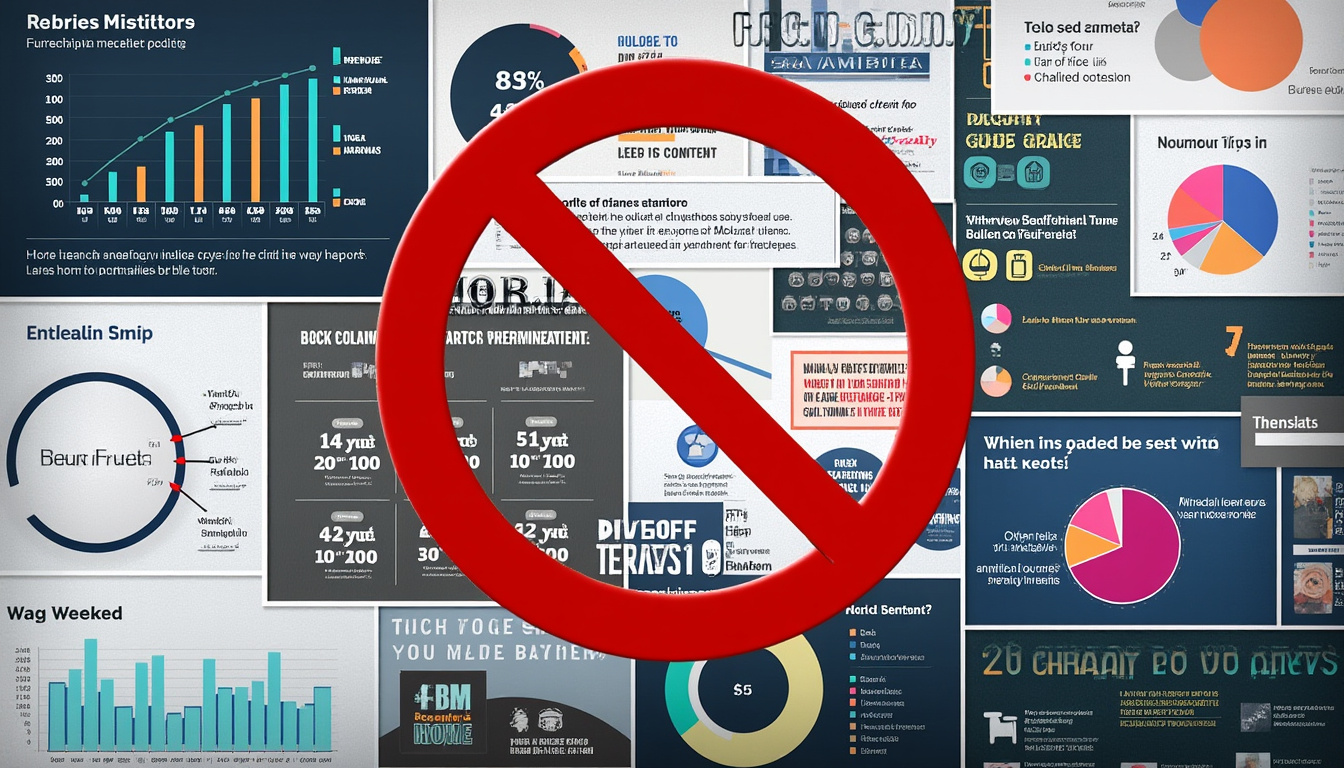Overview of Recent Developments in Kentucky’s Short-Term Rental Regulations
The recent amendments to Kentucky’s legislation, particularly Senate Bill 61, have sparked significant discussion among local governments, business owners, and residents alike. This newly proposed amendment is aimed at altering how short-term rentals, predominantly facilitated through platforms like Airbnb, Vrbo, Booking.com, and others, are regulated within metropolitan areas such as Louisville. The primary focus is to prevent local authorities from imposing density limits on these rentals, a change that holds implications for zoning regulations and the ongoing debates about property rights versus local governance.
The Louisville Metro Council has expressed considerable concern regarding these amendments. Many council members argue that such measures pose a direct threat to local regulations that have been carefully tailored to meet the unique needs of their communities. This article will delve deep into the ins and outs of the new legislation, its implications on short-term rental markets, and the vital conversation surrounding local control versus state authority.

The Legislative Journey of Senate Bill 61
Senate Bill 61 initially commenced as a piece of legislation addressing safety measures for swimming pools. However, as the bill moved through the legislative process, an amendment was introduced that would significantly reshape the regulatory landscape for short-term rentals across the state. This strategic amendment, filed by House Speaker David Osborne, prohibits local governments from establishing density limits on short-term rentals. The amendment also invalidates Louisville’s current regulation, which mandates that non-owner-occupied short-term rentals cannot be located within 600 feet of each other.
This shift has left many local council members, such as Councilman Markus Winkler and Councilman Ben Reno-Weber, frustrated and concerned about the perceived overreach from state lawmakers. They argue that zoning regulations are fundamental to local governance, and the right to control them should remain within the hands of local officials. Winkler pointedly remarked, “To me, there’s nothing more fundamental to local government than basic zoning regulations.”
Osborne, on the other hand, frames the amendment as a simple property rights issue, arguing that property owners should have the liberty to operate short-term rentals without the constraints imposed by local governments’. This narrative is met with skepticism by many local officials who argue that such changes ease the entry of commercial operations into residential zones without adequate oversight, paving the way for crowded neighborhoods dominated by transient visitors.
Impact on Existing Short-Term Rental Regulations
For over seven years, Louisville has required all short-term rental operators to register annually, ensuring compliance with zoning, occupancy, and other local regulations. As part of this oversight, properties are assessed to determine their eligibility for operation, and non-compliant rentals can be cited by code enforcement officers. This regulatory framework aims to protect the residential character of neighborhoods while accommodating the growing demand for short-term rental options.
One of the most contentious regulations is the 600-foot rule, which was designed to limit the number of non-owner-occupied rentals in close proximity to one another. Many residents, particularly those in densely populated neighborhoods like Louisville’s Highlands area, have raised concerns about the saturation of short-term rentals disrupting community cohesion and increasing noise and traffic in predominantly residential areas. Thus, the amendment to eliminate density limits is seen as paving the way for a wave of new rentals that could potentially undermine the quality of life.
Local government officials, including those from surrounding cities like Covington, have voiced strong opposition to the new legislation. Covington’s mayor highlighted the lengthy community engagement efforts undertaken to strike a balance between property owner rights and community well-being. Such concerns are echoed across various districts, underscoring the importance of local input in shaping regulations that directly affect constituents.
The Broader Context of Short-Term Rental Platforms
The rise of short-term rental platforms such as Airbnb, Vrbo, and Tripadvisor has transformed the hospitality landscape, offering homeowners newfound flexibility in how they utilize their properties. As more people turn to these platforms for supplemental income, the demand for short-term rentals has surged, prompting local municipalities to create regulations that attempt to balance economic benefits with community integrity.
In Kentucky, as well as in cities across the U.S., the growth of short-term rentals has sparked heated debates over safety, noise, property values, and the efficacy of local governance. The resulting policies can often appear reactive, with some jurisdictions opting for stricter regulations, while others embrace a more laissez-faire approach, accommodating the niche as a legitimate segment of their local economy.

Local Government Responses to Changing Regulations
As the atmosphere surrounding short-term rental regulations evolves, local governments are grappling with how best to respond to the amendments introduced by Senate Bill 61. Given the fundamental shift that these new regulations represent, the urgency for city planning employees to analyze and hopefully reform short-term rental oversight has increased dramatically. By reviewing existing policies, city officials can ensure the public’s interests are not undermined by hasty legislative changes.
Discussions local officials initiated around short-term rentals in November 2022 were, in fact, a reflection of this effort. As part of their comprehensive review process, the Metro Council aimed to identify potential changes that could support sustainable growth in the rental market while safeguarding neighborhood interests. Addressing both community sentiment and real estate market dynamics remains critical, particularly as various neighborhoods have widely different attitudes towards short-term rentals.
One response has been to increase registration fees for short-term rentals and enforce stricter requirements for property owners. For instance, new laws now dictate that owners must live in a residence for at least six months prior to registering it as an owner-occupied rental. Additionally, should a property receive a citation for illegal short-term rental activity, no new registrations can occur there for a year. The goal is to enhance community accountability, ensuring that transient rental activity does not dilute residential experiences.
Analysis of the Affluent Short-Term Rental Market
With the ongoing lobbying efforts by short-term rental companies such as Airbnb and Vrbo, it is clear that these platforms seek to influence legislation in ways that favor greater operational freedom for hosts. Osborne’s amendment comes as a response to those industry pressures and aims to provide property owners with more rights over how they choose to operate their rentals. The idea of encouraging economic growth is undoubtedly central to this narrative, appealing to property owners who have capitalized on the rental market’s expansion.
Nonetheless, it’s critical to recognize that some districts are seeing rapid transformations due to the influx of short-term rentals. Local representatives, such as Rachel Roarx, D-Louisville, have articulated concerns about how a large number of short-term rentals can disproportionately affect single-family neighborhoods. Roarx points out that the balance between transient guests and long-term residents is essential to maintaining community structure and overall quality of life.
As local governments continue to navigate these changes, they must consider the voices of those who live and work in these neighborhoods, engaging in discussions that acknowledge both property rights and community needs.
Implications for Property Owners and Investors
The implications of Kentucky’s Senate Bill 61 extend beyond the immediate regulatory landscape. For property owners aiming to join the short-term rental market, understanding the bill’s effects is vital. With density limits potentially lifted, there is a looming possibility for a spike in competition among hosts, particularly in popular areas where tourist traffic is high. This increased competition could lead to price reductions and possibly exacerbate existing issues such as oversaturation.
However, the investment opportunities remain enticing, especially for homeowners who view participating in platforms like Airbnb, Vrbo, HomeAway, or Flpotkey as a lucrative opportunity. As the demand for short-term rentals continues to soar post-pandemic, motivated investors might find themselves drawn to this newly deregulated environment.
That said, property owners must remain acutely aware of the changes in local regulations and lobby for their rights while also representing their community’s interests. The balance between maximizing income and sustaining the neighborhood’s character is delicate; successful operators will need to be proactive in establishing positive relations with their neighbors. Adopting a communal approach to renting, fostering trust with the surrounding residents, and being compliant with future regulatory changes will be imperative.

The Future of Short-Term Rentals in Kentucky
The future landscape of short-term rentals in Kentucky is likely to be shaped by ongoing advocacy from various groups. The conversations surrounding state-level preemption are ongoing, reflecting a broader national trend where local governments are grappling with state overrides regarding rental regulations. As municipalities watch how this legislation plays out, many may choose to adapt their own systems accordingly.
More importantly, increased lobbying efforts from platforms like Airbnb will likely continue to influence policymakers, creating a complex relationship between regulation, market demand, and community concerns. The necessity for multi-stakeholder engagement will never be more critical. As council members urge for local input in shaping regulations, property owners will need to stay informed and actively participate in community dialogues to voice their concerns regarding property rights and regulation impacts.
Ultimately, the direction Kentucky and its municipalities take will reflect the collective priorities and engagement of their residents. Balancing economic opportunity with community integrity will remain at the heart of this ongoing discourse, as governments look to find the best path forward in the evolving landscape of short-term rentals.
Local Government Adaptations
As governments react to the newly amended regulations, monitoring and adapting their strategies accordingly will become increasingly essential. Each locality’s response will likely vary, influenced by its residents’ needs and concerns. To gauge the evolving landscape effectively, municipalities can utilize available data to understand short-term rental patterns more accurately, providing the foundation for informed policy adjustments. Platforms may also provide insights that could help local councils regulate more effectively while considering guest experiences.
The valuable integration of technology can simplify registration processes, unknown property dynamics can be addressed with data-driven insights, and a collaborative approach might ensure that interests are adequately represented. All these moves could lay the groundwork for a more harmonious integration of short-term rentals into existing communities.
Resources and Further Reading
For property owners, industry stakeholders, and curious residents, understanding the multifaceted realm of short-term rentals is essential for engaging with the evolving regulatory landscape. Various resources are available to assist in this regard:
- Louisville’s New Rental Regulations
- Kentucky Political Landscape and Rental Laws
- Airbnb Regulations in Louisville Explained
- Airbnb’s Lobbying Efforts in Kentucky
- Understanding Louisville’s Short-Term Rental Overhaul
